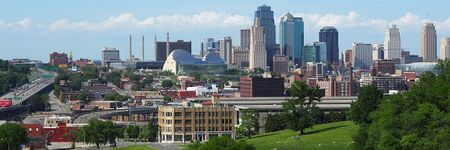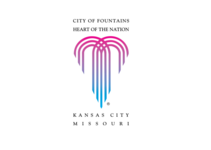Kansas City MO
- Members
Kansas City (abbreviated KC or KCMO) is the largest city in Missouri by population and area. As of the 2020 census, the city had a population of 508,090 in 2020, making it the 36th most-populous city in the United States. It is the most populated municipality and historic core city of the Kansas City metropolitan area, which straddles the Kansas–Missouri state line and has a population of 2,392,035. Most of the city lies within Jackson County, with portions spilling into Clay, Cass, and Platte counties. Kansas City was founded in the 1830s as a port on the Missouri River at its confluence with the Kansas River coming in from the west. On June 1, 1850, the town of Kansas was incorporated; shortly after came the establishment of the Kansas Territory. Confusion between the two ensued, and the name Kansas City was assigned to distinguish them soon after.
Activities

|
Applying Open Data to inform future Smart City Design | |
In order for cities and design professionals to have a more transparent understanding of the Climate Change impacts of potential building development, they must have a tool that provides quick and facile real time calculation linked to the weather data and utility information of an area, along with the potential energy usage. Between March 2016 and 2017:
| ||

|
Illuminating Smart Cities: Kansas City Runs on IoT Platform | |
| Kansas City, MO (KCMO) and its partners have designed and implemented an IoT platform to develop a smart city network, starting with Kansas City’s streetcar starter line in their Downtown area. Based on this initial site, the team has will implement a model that would make Kansas City the largest smart city network in North America. | ||






